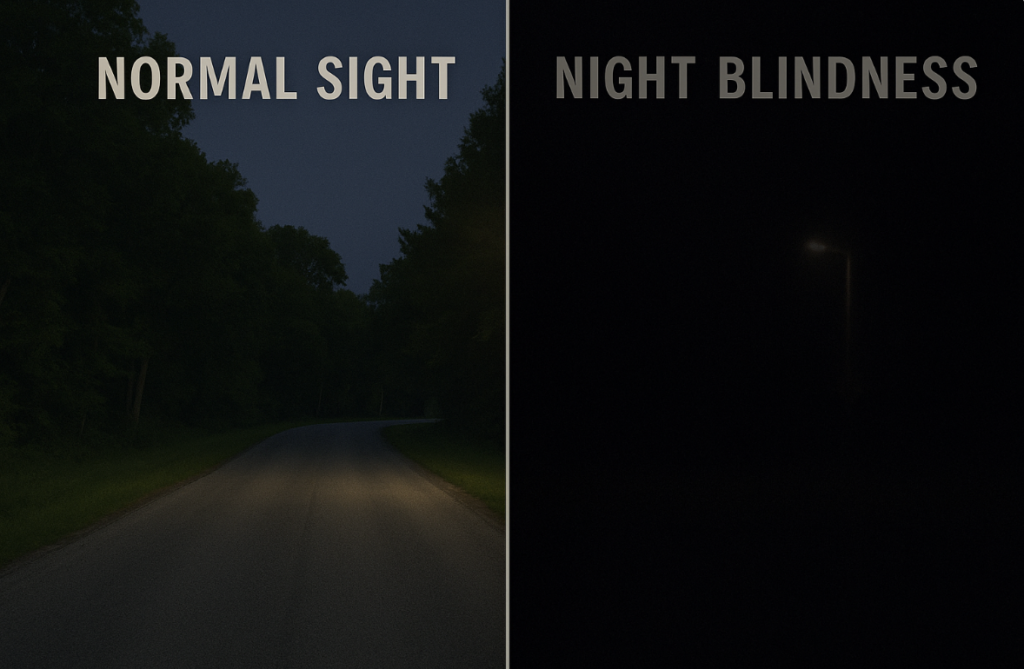Do you find it hard to see clearly when driving at night or walking through dimly lit spaces? It’s not always age or genetics—some of your daily habits could be silently harming your night vision. In this post, we’ll uncover common signs that you might have night blindness, why it happens, and what steps you can take to protect your eyes and improve your ability to see in low light.
👁️ What Is Night Blindness (Nyctalopia)?

Night blindness is a condition where your eyes struggle to adjust in low-light or dark environments. It can make activities like driving at night or navigating a dim room difficult and even dangerous.
Common Causes:
- Vitamin A deficiency
- Retinitis pigmentosa
- Glaucoma or cataracts
- Nearsightedness (myopia)
- Certain medications that affect eye health
🚩 Signs You Might Have Night Blindness
Recognizing the early signs is the first step in managing the condition:
- Trouble seeing in dim lighting or at night
- Slow adjustment when going from bright to dark areas
- Difficulty driving at night (especially with glare)
- Frequently bumping into objects in the dark
- Needing brighter lights than others to see clearly
🧠 Note: Some people experience these signs only mildly, while others find them severely disruptive.
🧪 What You Should Do Next
If you notice signs of night blindness, it’s important to take action:
- ✅ Visit an eye doctor for a full exam to determine the underlying cause
- ✅ Review your diet—make sure you’re getting enough vitamin A, zinc, and antioxidants
- ✅ Check your medications to see if any may affect your vision
🥗 Diet and Supplements That May Help
Your eyes rely on key nutrients to function properly in low-light conditions. Focus on:
- Vitamin A-rich foods like carrots, sweet potatoes, spinach
- Zinc sources like pumpkin seeds, lentils, and eggs
- Omega-3s from salmon, walnuts, or flaxseed
- Lutein and zeaxanthin from leafy greens
💊 Consider supplements if you’re not getting enough through food—but consult your doctor first.
🌙 Lifestyle Changes for Better Night Vision
- Limit blue light exposure before bed
- Get 7–9 hours of sleep each night
- Wear UV-protective sunglasses during the day
- Use proper lighting in your home and car
Night blindness can be frustrating and even risky, but it’s often manageable. By recognizing the signs early, seeking medical guidance, and making supportive dietary and lifestyle changes, you can protect your night vision and overall eye health.
